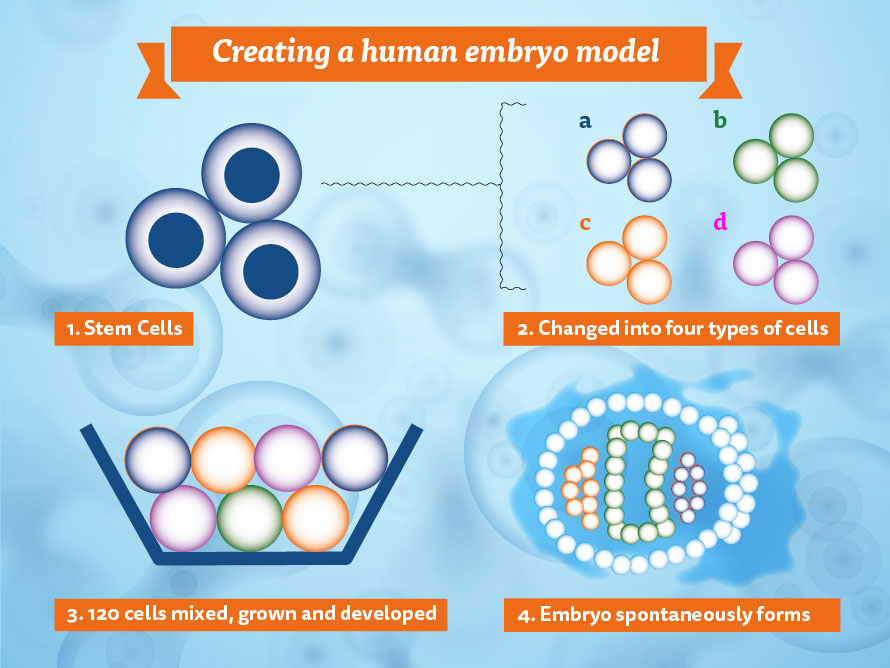Is this morally wrong? For the first time, researchers have created a model embryo without using sperm or an egg. It could revolutionise medical science — but some are worried about what is next.
Replica embryo made without sperm or egg
 How to make an embyro: Stem cells, rather than an egg and sperm, were used to create the synthetic embryo.
How to make an embyro: Stem cells, rather than an egg and sperm, were used to create the synthetic embryo. Glossary
Embryo - A fertilised egg that is developing into a foetus.
Bokanovskified - In the novel Brave New World, the Bokanovsky process is a method of human reproduction. Fertilised eggs are split into identical copies to create a large, identical workforce.
Proliferate - Increase in number. In botany it refers to developing buds or shoots, and in biology to cellular division.
Dystopian - Relating to an imagined society where there is great suffering or injustice.
Fertility - The ability to have a child.
Stem cells - Unspecialised cells that have the ability to develop into different types of cell.
Infertility - When a couple are unable to have children.
Genetic diseases - A disease caused by a mutation, or change, in somebody's DNA. Genetic diseases are diseases people are born with.
Cloning - Creating an exact copy.
Princeton University - A well-known Ivy League university in the USA.
